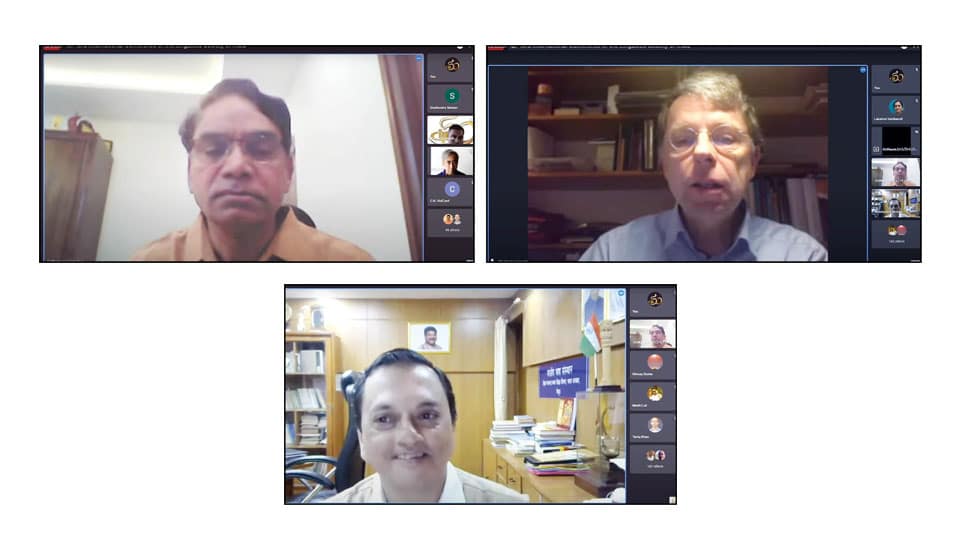Mysore/Mysuru: The Central Institute of Indian Languages (CIIL), Mysuru, in collaboration with the Linguistic Society of India, (LSI), Pune, has organised the 43rd International Conference of Linguistic Society of India (ICOLSI-43) at CIIL, Mysuru. The conference, which began virtually on Dec.21, will conclude today (Dec.23).
Prof. G. Umamaheshwara Rao, President, Linguistic Society of India, delivered the inaugural address on the topic ‘Languages of India and their Economic Contributions.’
He mentioned that languages are the landmarks of human heritage, as they reflect the way of life and thoughts and also preserve the diversity of human civilisation. Linguistic diversity may increase employment opportunities and mother-tongue is key to end global hunger.
Prof. Rao emphasised the significance of education in mother-tongue and said both developed and developing countries should continue to use mother-tongue as medium of education in accordance with the principles of social and civic justice.
He further added that where there is no space for mother- tongue instruction, the classroom becomes irrelevant and the concept of teaching in the language of people is the source of strength for democracy.
Prof. Martin Haspelmath of Max Planck Institute for Science of Human History, Germany, in his keynote address on the topic ‘Language descriptions and language universals’ highlighted the human communication and said that to understand a human language, we need to adopt a comparative approach with comparative concepts as uniform yardsticks of measurements. Prof. Martin also drew examples and excerpts from Indian languages in his address.
Prof. Shailendra Mohan, Director, CIIL, who presided, emphasised the social roles of linguists and said that to realise the vision of ‘Ek Bharat Shreshtha Bharat’ linguists have the additional responsibility to promote the interaction and mutual understanding between the people of different cultures and traditions through their academic efforts and initiatives.
Speaking on the research activities of CIIL, Prof. Mohan added that very soon the Institute will release the language archive repository for Indian languages, and this will include major as well as minor languages, especially that of North-Eastern region and other indigenous communities.
He also mentioned that CIIL plans to release language archive and children’s literature databank for the stakeholders of language education and academic researchers. Dr. Tariq Khan, Coordinator, ICOLSI-43, welcomed. Dr. L.R. Prem Kumar proposed a vote of thanks.








Recent Comments